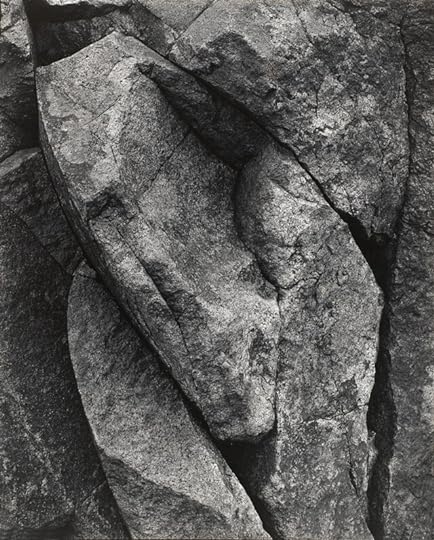What do you think?
Rate this book


112 pages, Paperback
First published March 12, 2020
‘The short term can tether you to the world of senses—the hazardous, inexact border that cuts through the forest…Its greatest virtue is that it keeps you on your toes. At the same time they removed me from my chosen life. Eight years with Samsa and every millimeter of land has been charted. All of it. How can existence exhaust itself? I contemplate disappearing.’
‘Having a kid is an enormous undertaking. It kicks into gear right away, without any warning. It comes out of nowhere with such extraordinary force that it razes everything to the ground, like an earthquake…It seems unbelievable that a single decision, a fucking intangible thought, could so violently upset the flesh-and-bone scaffolding of daily life, the steady rhythm of the hours, the predictable, material color of the landscapes that give us nourishment and company…Its presence has dimension; it occupies the house with concrete tentacles, sinks into the skulls of the people who live there, and clings to the fine membrane that sheathes their gray matter. I can't get away, it follows me wherever I go like a sinner harassing another sinner, stoning him and hissing all of his fears into his ear.’
‘I feel like an elderly mafioso, like Samsa belongs to me not out of the love we have for one another but out of a new, shared responsibility, because I am in a position to accommodate an improbable, difficult whim.’
‘Holding Tinna like this makes me feel strange and new. It makes me think of all the words that have grown over me like hedges or weeds. Among them, one that's harder and older than any other in the world: mother.’


Fucking her with a strap-on is like waking up summer and drowning it in its own swelter, it’s tossing her way up high and fighting the undertow that pulls me under before I give in to the quiet. For hours and hours (15).
Food: “If I’ve got one skill in the kitchen, it’s carving things up. The rest is hardly an art” (6).
Land: “I’d dug into the island with my nails and learned that the pulp of your fingers can harden” (7).
Cohabitation: “Life tears open like a wound that rots and bubbles. If anyone talks to me about happiness, I swear to God I’ll break their face” (17).
Children: “I find them annoying. They’re unpredictable variables that come crashing into my coastal shelf with the gale force of their natural madness” (22).
Her hair looks like it’s about to self-immolate, a bundle of twigs that huddles together the second before the fire is lit. I wish she was always like this.I haven’t met someone like Boulder in a long time – she embarks upon a sailing ship by the coast of Chile as its popular chef and disembarks from it for good to support her beloved in Iceland with the same conviction. Easy doesn’t come to her and she doesn’t seek it. What she seeks is clarity. Shifting love, moving wants, transforming bodies, expanding spaces, hazy priorities, changing behaviors – she drowns in them like an amateur swimmer every time, dreadfully stripped of off her experienced laps.
I’m a winter flower that bloomed by mistake and closes again.Eva Baltasar writes with a crushing urgency that is impossible to shake off. Page after page, her words leapt like a possessed snake and dug its fangs in me with remarkable precision and consistency.
Desire cannot be killed, it can only be fermented and rocked to sleep.Her depiction of love between Boulder and Samsa consumed me to the point of turning me a voyeur and just when I was settling into this new skin, she dropped me in a whirlpool of motherhood that besieges one and repels the other. This rabid dance of their relationship on the slider of time held me in such a circle of tense inebriation that my eyes failed to see through her legerdemain which was, after all, never her intent. In sensual, raw and metaphorically aching narrative spanning a decade, Eva brings to fore the inner schemas of desires that twist majestically to dissipate some telling truths. I still cannot fathom a book like this can breathe; perhaps, I am still held at neck by the silk and slither of the being she has conjured….
The power she exudes is subtle, almost tender, beautiful and supple yet resilient, like the silk of a spider’s web.

And Other Stories publishes some of the best in contemporary writing, including many translations. We aim to push people’s reading limits and help them discover authors of adventurous and inspiring writing.
